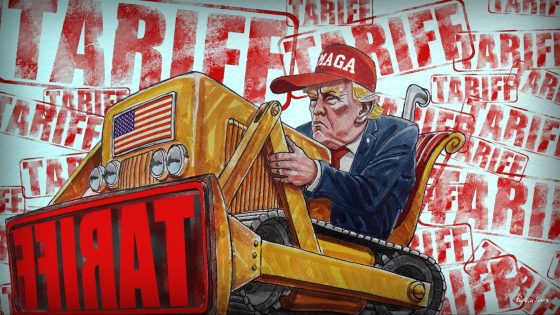On February 3, 2025, former President Donald Trump is reportedly fostering an anti-American alliance through his international policies and rhetoric. This development has raised concerns among political analysts regarding its implications for U.S. foreign relations and global stability.
- Anti-American alliance concerns with Trump
- Promises leading to global risk and turmoil
- Trade tactics may backfire on Trump
- Tariffs predicted to have negative effects
- Trump's actions align with his campaign promises
Trump’s recent actions and statements have sparked debates about their potential to unite nations against U.S. interests. Political experts suggest that his approach may be alienating traditional allies while emboldening adversaries. This shift could lead to a realignment of global alliances, with countries reevaluating their partnerships with the united states.
Key points include:
- Trump’s trade policies have been criticized for their aggressive stance, which may provoke retaliatory measures from other nations.
- His rhetoric often emphasizes nationalism, which some argue undermines international cooperation.
- Analysts predict that these actions could create a more polarized global environment.
Moreover, the implications of Trump’s policies extend beyond immediate diplomatic relations. As nations respond to his administration’s tactics, there is potential for increased tensions and conflicts in various regions. The long-term effects could reshape the landscape of international politics, leading to a more fragmented world order.
In summary, Trump’s actions are seen as contributing to the formation of an anti-American alliance, raising alarms about the future of U.S. foreign relations. The evolving political landscape may have lasting effects on global stability and international cooperation.

































